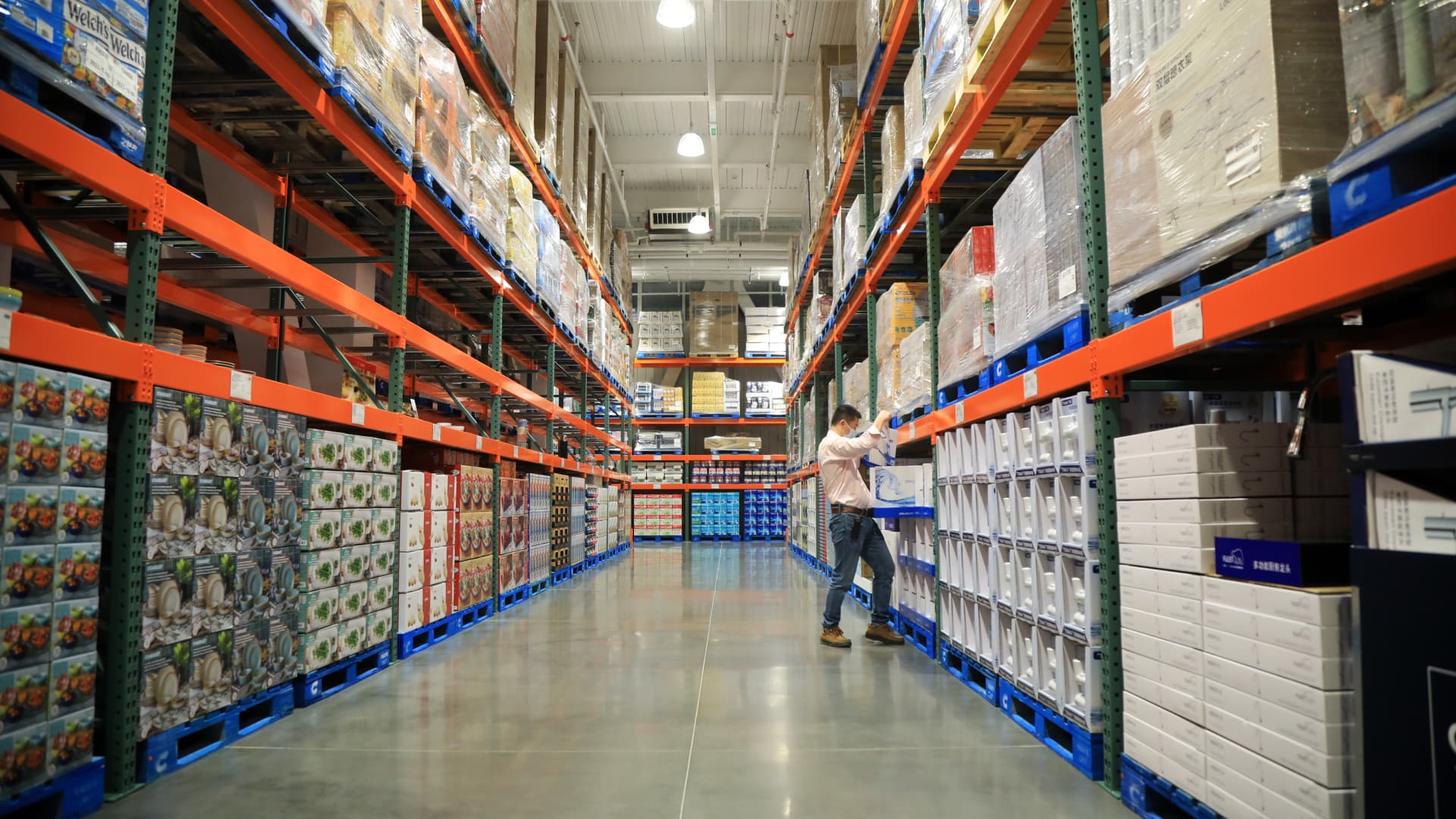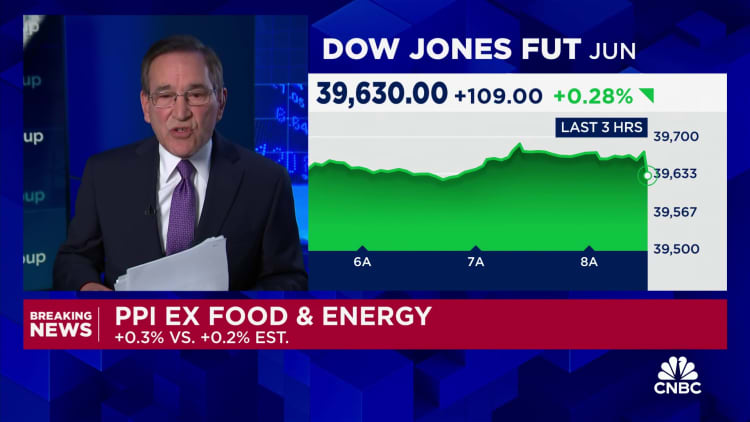Wholesale prices accelerated at a faster-than-expected pace in February, another reminder that inflation remains a troublesome issue for the U.S. economy.
The producer price index, which measures pipeline costs for raw, intermediate and finished goods, jumped 0.6% on the month, the Labor Department’s Bureau of Labor Statistics reported Thursday. That was higher than the 0.3% forecast from Dow Jones and comes after a 0.3% increase in January.
Excluding food and energy, the core PPI accelerated by 0.3%, compared with the estimate for a 0.2% increase. Another measure that also excludes trade services rose 0.4%, compared with the 0.6% gain in January, and was above the estimate for a 0.2% advance.
On a year-over-year basis, the headline index increased 1.6%, the biggest move since September 2023.
The data contributed to a decline on Wall Street, with the major U.S. stock falling slightly. Treasury yields climbed on the back of the report.
A busy morning for economic data also showed that retail sales rebounded, up 0.6% on the month, according to Commerce Department data that is adjusted seasonally but not for inflation. The increase helped reverse a downwardly revised 1.1% slump in January, but was still below the estimate for a 0.8% rise.
Also, initial filings for unemployment insurance nudged lower to 209,000 last week, a decrease of 1,000 and below the estimate for 218,000, the Labor Department reported. Continuing claims edged higher to 1.81 million, though the previous week’s count was revised sharply lower.
The market focused on the PPI release, which comes two days after the consumer price index, which measures what consumers pay in the marketplace, showed that inflation was slightly higher than anticipated on a year-over-year basis.
The PPI is considered a leading indicator for inflation as it indicates costs early in the supply chain.
The BLS reported that about two-thirds of the rise in the headline PPI came from a 1.2% surge in goods prices, the biggest increase since August 2023. As with the CPI, the acceleration was traced to energy prices, with saw a 4.4% increase in the final demand measure. Gasoline prices jumped 6.8% at the wholesale level.
Services costs increased 0.3%, boosted by a 3.8% surge in traveler accommodation services.
Retail shows rebound
On the retail sales side, the data indicated that consumers kept ahead of CPI inflation, which increased 0.4% on the month, though sales were still sluggish.
Excluding auto, retail sales rose 0.3%, one-tenth of a percentage point below expectations. Motor vehicle parts and dealers saw an increase of 1.6%, second only to the 2.2% gain for building material and garden centers on the month.
Despite slumping prices, gasoline stations reported an increase of 0.9%. Electronics and appliance sales rose 1.5% while miscellaneous store sales climbed 0.6% and restaurants and bars were up 0.4%.
Retail sales posted a 1.5% gain on a year-over-year basis, below the 3.2% increase in the CPI.
Inflation-related data is being watched closely on Wall Street, ahead of the Federal Reserve’s two-day policy meeting starting next Tuesday.
While the central bank is almost certain to hold its benchmark interest rate in place, markets will be looking for clues about the future of monetary policy. Futures pricing is pointing toward the rate-setting Federal Open Market Committee to start cutting interest rates in June, with three quarter-percentage point decreases expected this year.
At the meeting, policymakers will update their outlooks for rates, economic growth, inflation and unemployment.

 Accounting1 week ago
Accounting1 week ago
 Personal Finance1 week ago
Personal Finance1 week ago
 Accounting1 week ago
Accounting1 week ago
 Finance1 week ago
Finance1 week ago
 Personal Finance1 week ago
Personal Finance1 week ago
 Blog Post1 week ago
Blog Post1 week ago
 Personal Finance1 week ago
Personal Finance1 week ago
 Accounting1 week ago
Accounting1 week ago























